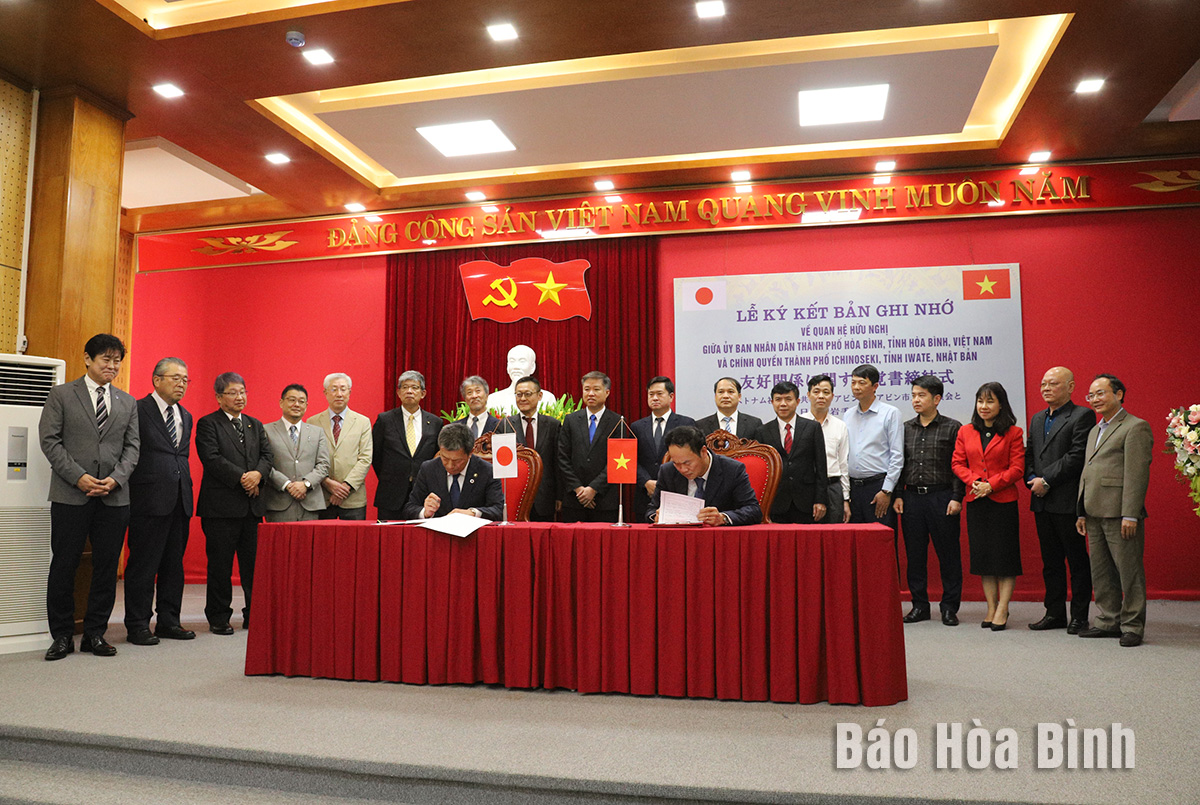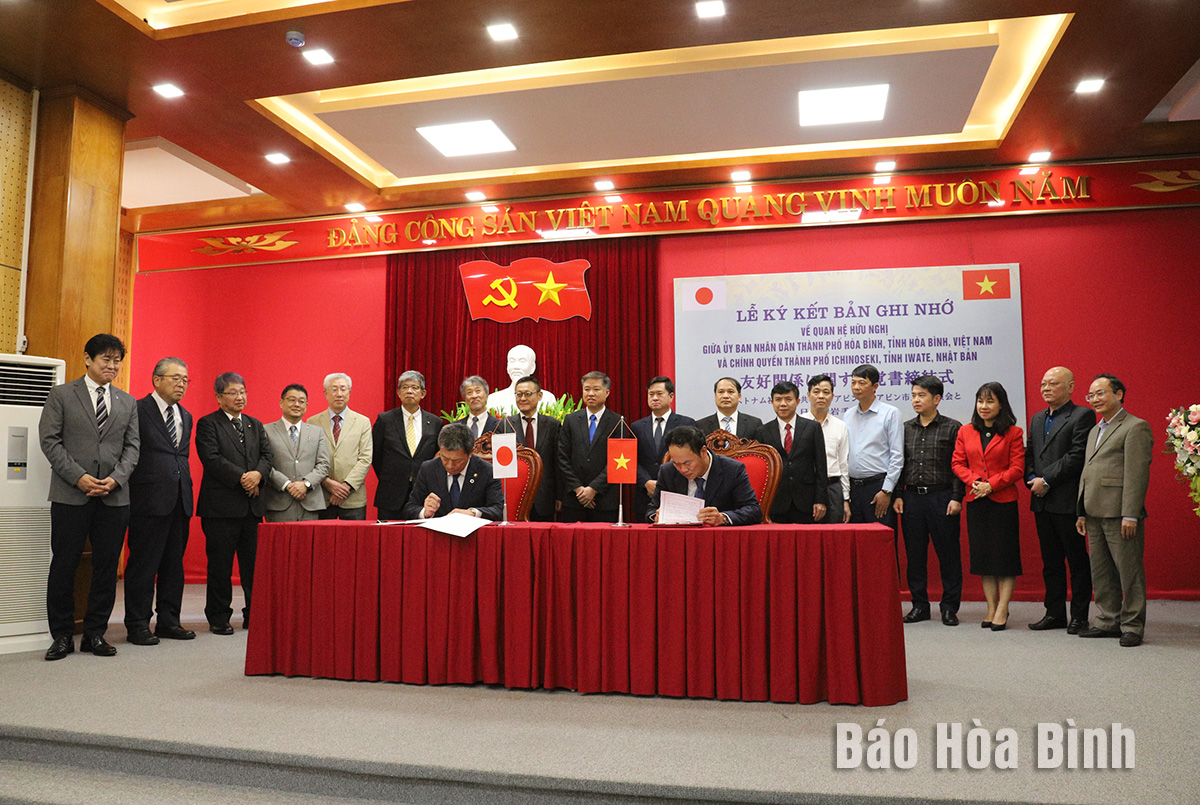
A delegation of Ichinoseki city, located in Japan’s Iwate prefecture, led by Mayor Yoshihito Sato paid a working visit to Hoa Binh city of Hoa Binh province on January 18 to discuss bilateral cooperation. They were welcomed by Nguyen Van Thang, member of the provincial Party Committee’s Standing Board and Secretary of the Party Committee of Hoa Binh city, along with officials of some local departments and sectors.
Leaders of the administrations of Ichinoseki and Hoa Binh cities sign a memorandum of understanding on cooperation.
Addressing the meeting, Secretary of the Hoa Binh municipal Party Committee Nguyen Van Thang said with many similarities between the two sides, he hopes his city will have long-term cooperation with Ichinoseki in order to attract more investment to local industrial parks and clusters, and develop urban areas, tourism, culture, sports, health care, waste treatment, agriculture, and rural areas.
Mayor Yoshihito highly valued the socio-economic development of Hoa Binh city. He said many Japanese enterprises have come to invest here, and thanks to support from the city’s authorities, they have operated effectively, thus substantially contributing to Hoa Binh province’s budget and creating jobs for many local residents.
At the event, the two sides introduced their respective cities’ potential, strength, environmental landscapes, and cultural traditions. They discussed and agreed on the cooperation in training and labour export. They also proposed exchanges and programmes be held to share experience in the management of educational institutions, enhance cultural links, develop tourism, attract investment, and train health workers.
After that, the administrations of Ichinoseki and Hoa Binh cities signed a memorandum on cooperation under which they will promote investment attraction to local industrial parks and clusters. They will share management experience in the fields of urban development, tourism, culture, sports, health, science - technology, clean industries, waste treatment, and environmental protection. The two cities will also reinforce ties in human resources development in line with relevant legal regulations of Vietnam and Japan. In addition, they will step up the sending and reception of Vietnamese technicians, engineers, trainees, skilled workers, and vocational students in the areas matching both sides’ interest.
Besides, the cities will consider pushing ahead with the collaboration in agriculture and rural development, especially sharing agricultural production and processing techniques, and foster friendship, people-to-people ties, and cultural exchanges.
According to data from the Hoa Binh Provincial Party Committee, the industrial production index for the first six months of 2025 is estimated to have increased by 20% compared to the same period last year. This marks the highest year-on-year growth rate for this period since 2020.
In the first six months of 2025, Hoa Binh province’s export turnover was estimated at 1.145 billion USD, marking an 18.11% increase compared to the same period in 2024. Import turnover was estimated at $ 804 million, a 17.15% increase, which helped the province maintain a positive trade balance.
The lives of the ethnic minority farmers in Tan Lac district have gradually improved thanks to the new directions in agricultural production. This is a testament to the collective strength fostered through the professional associations and groups implemented by various levels of the district’s Farmers’ Union.
With the motto the "product quality comes first,” after nearly one year of establishment and operation, Muong village’s Clean Food Agricultural and Commercial Cooperative, located in Cau Hamlet, Hung Son Commune (Kim Boi district), has launched reputable, high-quality agricultural products to the market that are well-received by consumers. The products such as Muong village’s pork sausage, salt-cured chicken, and salt-cured pork hocks have gradually carved out a place in the market and they are on the path to obtaining the OCOP certification.
In the past, the phrase "bumper harvest, rock-bottom prices" was a familiar refrain for Vietnamese farmers engaged in fragmented, small-scale agriculture. But today, a new spirit is emerging across rural areas of Hoa Binh province - one of collaboration, organisation, and collective economic models that provide a stable foundation for production.
Maintaining growing area codes and packing facility codes in accordance with regulations is a mandatory requirement for agricultural products to be eligible for export. Recently, the Department of Agriculture and Environment of Hoa Binh province has intensified technical supervision of designated farming areas and packing facilities to safeguard the "green passport" that enables its products to access international markets.



